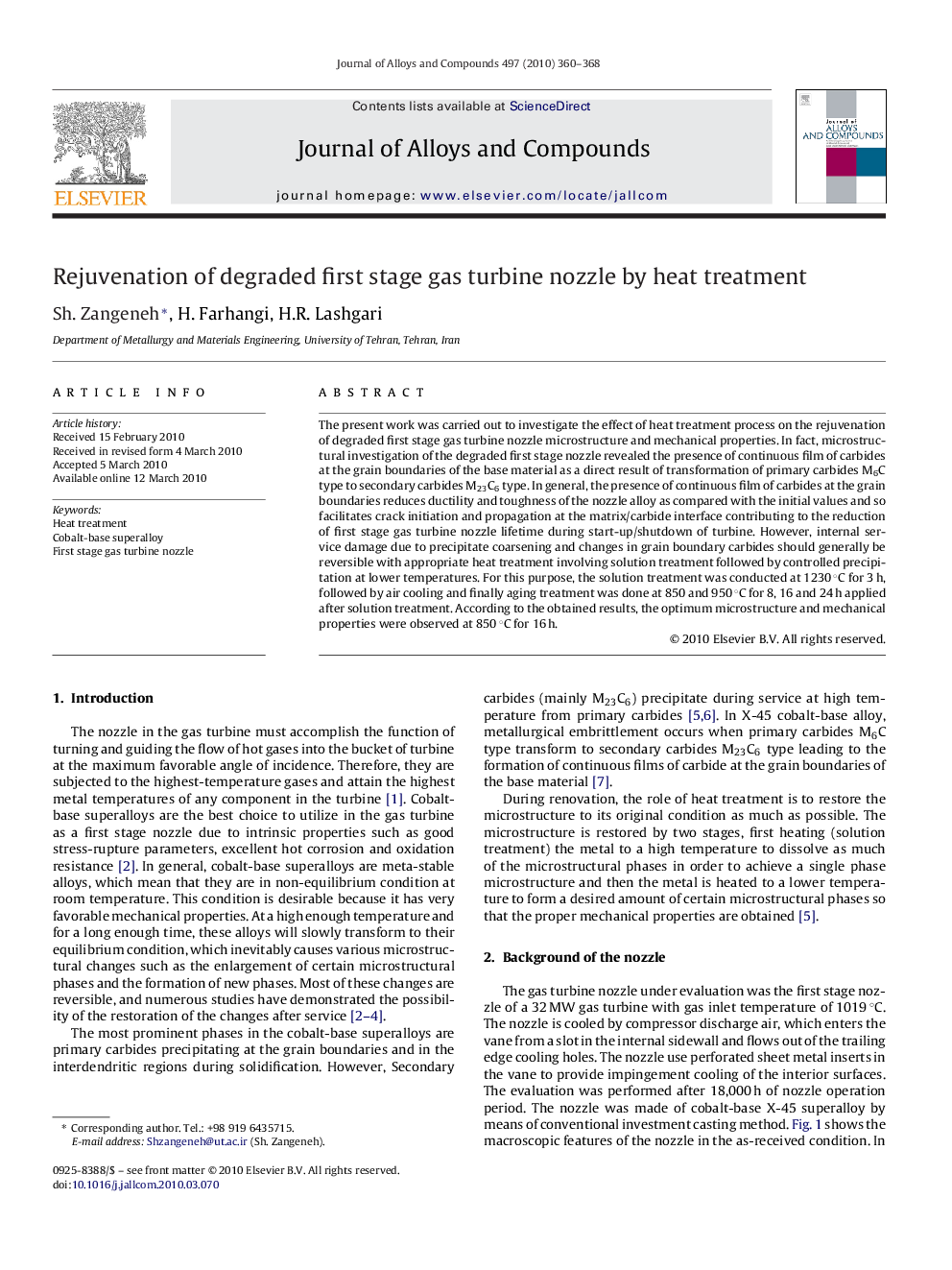| Article ID | Journal | Published Year | Pages | File Type |
|---|---|---|---|---|
| 1618757 | Journal of Alloys and Compounds | 2010 | 9 Pages |
Abstract
The present work was carried out to investigate the effect of heat treatment process on the rejuvenation of degraded first stage gas turbine nozzle microstructure and mechanical properties. In fact, microstructural investigation of the degraded first stage nozzle revealed the presence of continuous film of carbides at the grain boundaries of the base material as a direct result of transformation of primary carbides M6C type to secondary carbides M23C6 type. In general, the presence of continuous film of carbides at the grain boundaries reduces ductility and toughness of the nozzle alloy as compared with the initial values and so facilitates crack initiation and propagation at the matrix/carbide interface contributing to the reduction of first stage gas turbine nozzle lifetime during start-up/shutdown of turbine. However, internal service damage due to precipitate coarsening and changes in grain boundary carbides should generally be reversible with appropriate heat treatment involving solution treatment followed by controlled precipitation at lower temperatures. For this purpose, the solution treatment was conducted at 1230 °C for 3 h, followed by air cooling and finally aging treatment was done at 850 and 950 °C for 8, 16 and 24 h applied after solution treatment. According to the obtained results, the optimum microstructure and mechanical properties were observed at 850 °C for 16 h.
Keywords
Related Topics
Physical Sciences and Engineering
Materials Science
Metals and Alloys
Authors
Sh. Zangeneh, H. Farhangi, H.R. Lashgari,
